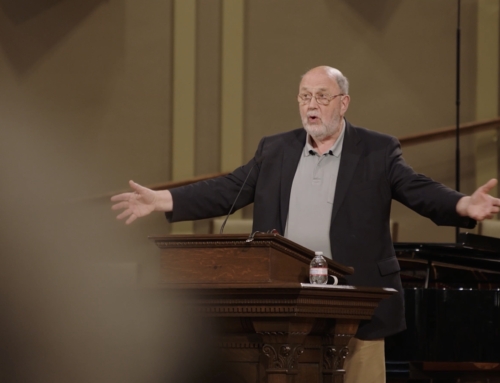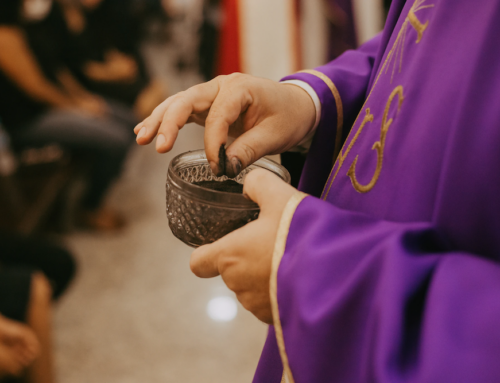This blog post introduces ideas from our forthcoming course Paul’s First Letter to Corinth: Part One. Sign up HERE to receive a coupon once it’s available.
This is the evidence John gave, when the Judaeans sent priests and Levites from Jerusalem to ask him, ‘Who are you?’
He was quite open about it; he didn’t try to deny it. He said, quite openly, ‘I am not the Messiah’.
‘What then?’ they asked. ‘Are you Elijah?’
‘No, I’m not’, he replied.
‘Are you the Prophet?’
‘No’.
‘Well, then, who are you?’ they said. ‘We’ve got to take some kind of answer back to the people who sent us. Who do you claim to be?’
‘I’m “a voice calling in the desert,” ’ he said, ‘ “Straighten out the road for the master!” ’—just as the prophet Isaiah said.
The people who had been sent were from the Pharisees. 25 They continued to question him.
‘So why are you baptizing’, they asked, ‘if you aren’t the Messiah, or Elijah, or the Prophet?’
‘I’m baptizing with water’, John replied. ‘But there is someone standing among you that you don’t know, 27 someone who is to come after me. I’m not good enough to undo his sandal-strap’.
This took place in Bethany beyond the Jordan, where John was baptizing.
John 1:19-28 (Kingdom New Testament)
‘I’m a voice calling in the desert’, says John the Baptist. Think of that image. Someone in the desert crying out. That’s all. If you have been in a desert environment, it is a bleak and empty, dry place. No signs of life. But that was John the Baptist’s calling. Yell out into the wilderness and see who might come to hear it!
Yet Jesus declares later that, indeed, John the Baptist was the Elijah that was to come in Matthew 11:11-15:
Truly I tell you, among those born of women no one has arisen greater than John the Baptist; yet the least in the kingdom of heaven is greater than he. From the days of John the Baptist until now the kingdom of heaven has suffered violence, and the violent take it by force. For all the prophets and the law prophesied until John came; and if you are willing to accept it, he is Elijah who is to come. Let anyone with ears listen!
Two Views of John the Baptist
I always am amazed at two views of who John the Baptist actually was. John’s own view of himself was simply that he was the spokesperson for the time. He’s a signpost, but a signpost who is quite unaware of his greater significance. Jesus, of course, knows of John’s significance. At Jesus’ baptism, John objects and says that this is the wrong way around. Jesus should baptize John. No, Jesus says. God’s faithfulness to His covenant requires John to baptize Jesus, an anointing ritual in the process of Jesus’ full ascent to the throne as the King of Kings.
Jesus’ view, the ‘long-view’, was about how God’s covenant faithfulness would be taken one step further by John the Baptist’s actions. Yet John the Baptist is, to a great extent, unaware of the bigger picture. We know this because of his own query, while in prison, when he inquires about whether or not Jesus really is the promised King. Jesus gives John’s disciples the words in Luke 7:22-23:
Go and tell John what you have seen and heard: the blind receive their sight, the lame walk, the lepers are cleansed, the deaf hear, the dead are raised, the poor have good news brought to them. And blessed is anyone who takes no offense at me.
These are signs in the Gospel of John that the King is here and the Kingdom of God is being inaugurated.
But, John the Baptist’s surroundings do not concur with his image of what a ‘kingdom’ should look like. John is in prison; he will soon lose his life. Jesus’ role as King inaugurates a different kind of Kingdom that is explained in the Beatitudes and the broader ‘Sermon on the Mount’. It is also marked by the love which Paul defines in 1 Corinthians 13. We also find Kingdom of God actions and attitudes described in Paul’s glorious vision of what it is to exhibit the fruit of the Holy Spirit in Galatians 5.
Kingdom Done God’s Way
This is Kingdom done in God’s way, not the human way, although, in truth, Jesus is the true ‘Human’ to show how this was always the way of being in authority over the created order. No wonder John the Baptist would ask questions. Jesus’ authority doesn’t look like Roman authority or much Jewish expectation of how Messiah’s authority would be demonstrated. Nor should it! The way of the world is diametrically opposed to the ‘Way’ of Jesus.
God’s people are called to be people who live in a different way, exhibiting the curious and often confusing ‘way of Jesus’ in the midst of the world which does ‘kingdom’ in the usual way: arrogance, pride, power, abuse, retribution, and, most distinctively, without regard for the ‘other’.
The ‘in Messiah’ people are to be ‘signposts unaware’ of their significance. They live in ways that are so counter-cultural because they ‘do power’ in the ‘Jesus way’. Humility, grace, honesty, mercy, love of enemy, rejection of retribution is that way. But, while this will be odd to the world, most will not understand that these are the ‘secret’ ways of acting. Much of the time we act without calling attention to ourselves. It is the ‘way’ of John the Baptist. We understand our roles often as ‘looking through a glass darkly’ as the KJV put it in 1 Cor 13:7.
‘In Messiah’ people are unaware of their significance, counter-cultural because they ‘do power’ in the ‘Jesus way’. Humility, grace, honesty, mercy, love of enemy, rejection of retribution is that way. Click To TweetAnd in this we are content. We are better off not knowing whether or not we are ‘significant’ in God’s eyes. The more we are ‘signposts unaware’, the more God gets the attention and we don’t.
David P. Seemuth, PhD
Latest posts by David P. Seemuth, PhD (see all)
- Advent Reflections from the N.T. Wright Online Team - December 5, 2022
- YouTube as Public Reading of Scripture - August 29, 2022
- What I Learned From A Week With Professor Wright - June 16, 2022







